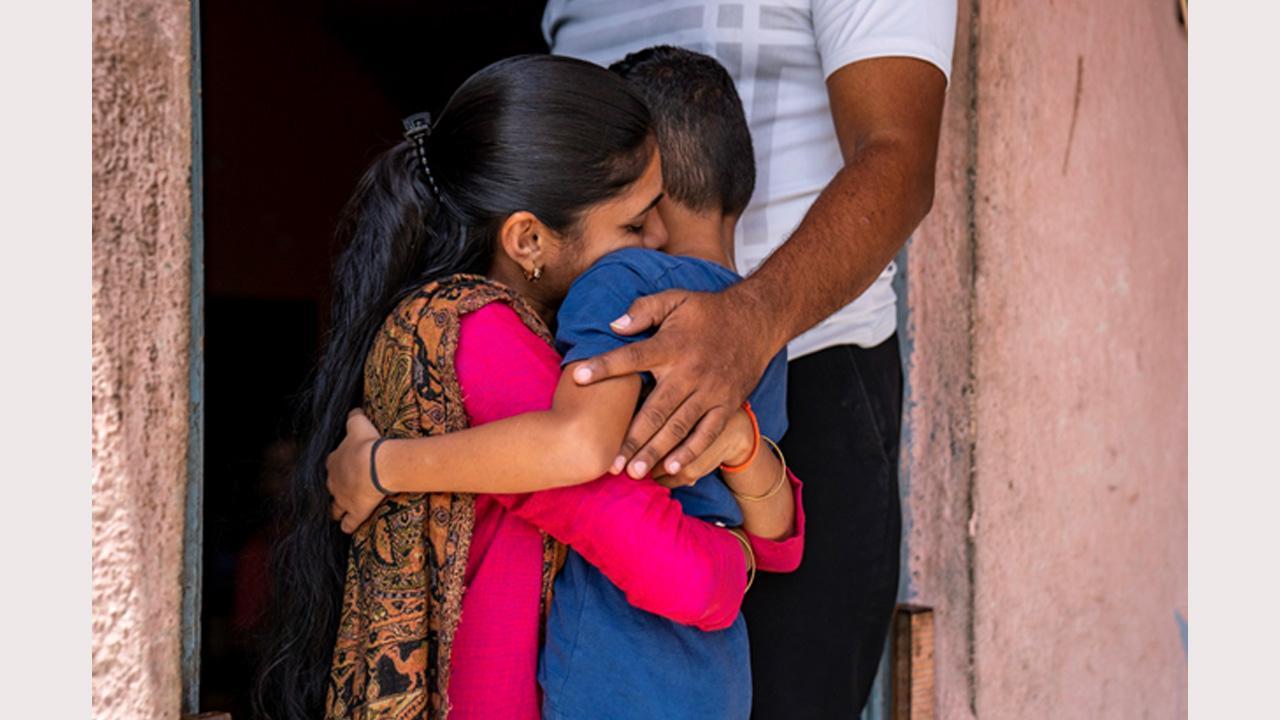Since its inception the organisation has supported more than 170,000 children to either be reintegrated with families or prevent separations due to any crisis.

Miracle Foundation India
Did you know that 80% of children currently growing up in Child Care Institutions (orphanages) have a living family member they could return to if given the right support?
ADVERTISEMENT
Most children growing up in these institutions are not ”orphaned” in the traditional sense of the term. “Our work over the past 23 years shows that families are often forced to send their children to institutions because of reasons such as acute poverty,” says Kusum Mohapatra, the Regional Director and India CEO of Miracle Foundation India, “We’ve learned that supporting vulnerable families before a crisis happens or responding as quickly one can is the best way to help children in the long run."
Children naturally want to grow up in a family and have the right to a safe, stable, and permanent home. And yet lakhs of children remain in institutions, separated from families, worldwide.
This is why Miracle Foundation decided to focus on ensuring children growing up in “at-risk” families – families that can go into sudden crises and consider child separations – get the support they need to stay together. Their vision is "a family for every child within our lifetime". “This is not just a slogan. We think it is doable with a strong collaboration between the Governments and like-minded organizations in the child protection ecosystem,” says Ms. Mohapatra. Along with several other organisations, Miracle Foundation is part of a movement to reunite orphaned children with their families globally. Together with partners all over the world, the organisation believes it can collectively end the need for orphanages.
Since its inception the organisation has supported more than 170,000 children to either be reintegrated with families or prevent separations due to any crisis. To achieve this, they are actively uniting children with families, partnering with Governments and frontline workers, and working closely with the social workforce to prevent children from entering the system whenever possible.
By working together with the institutions such as Child Welfare Committees, Child Care Institutions, and the community at large, the hope is that the need for orphanages will be eliminated over time. “India has been traditionally known for its kinship care. If a child , for any reason, is unable to be cared for by their primary family, traditionally a relative or close friend has always stepped in,” says Ms. Mohapatra. “We need to reignite such local traditions so that we can unite children with families safely and sustainably – always preferring family/kinship care over institutions. What we need are mechanisms that ensure children stay protected, cared for and safe.”
The organisation’s work focuses on a three-pronged approach. On the one hand, families are strengthened in ways that stabilise their livelihood options, make the home safe for children to grow up in, regularise access to health and education and improve the overall home environment. Miracle Foundation works closely with the social work force to ensure institutionalisation should be a last resort by providing effective gatekeeping. Second, for children who are already growing up within Child Care Institutions they ensure a safe and sustainable transition to their biological families or kin as much as possible. Lastly, they are actively working with young people with lived experiences (children who grew up in institutions and are now adults) to lead independent lives and livelihoods by finding decent work – through skill building, mentoring, educational scholarships and more.
Research has shown the negative impact of institutionalization on children’s health, IQ, mental development and life chances (Source: Unicef). But suppose families are strengthened and given the right opportunities to tide over crisis periods. In that case, a child will not need to be separated from families and will grow up within a family, safe without having a feeling of abandonment that causes multiple complex issues later in life.
Miracle's versatile Thrive Scale(TM) methodology is a tested method to ensure children at risk are identified and responded to quickly by the social workforce.
“Together we can end the need for childcare institutions and bring children home where they belong,” Ms. Mohapatra says. "Over a period of time, this is a vision that looks completely achievable. This is a problem that we can collectively definitely solve, within our lifetime."
 Subscribe today by clicking the link and stay updated with the latest news!" Click here!
Subscribe today by clicking the link and stay updated with the latest news!" Click here!







